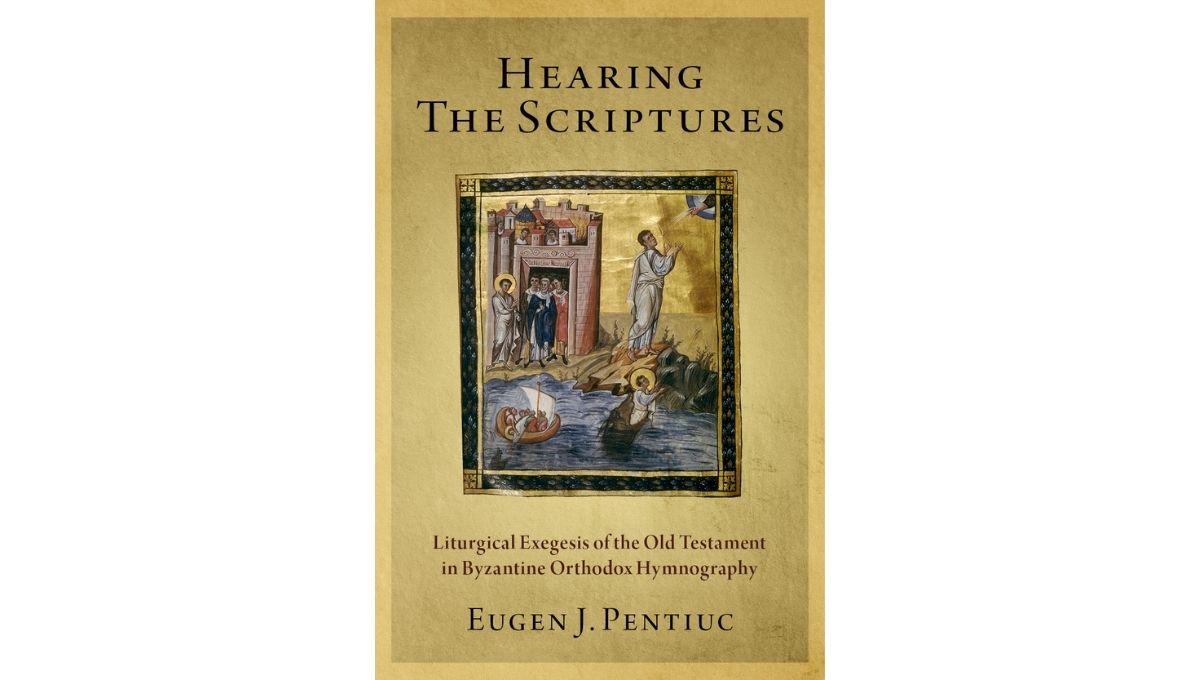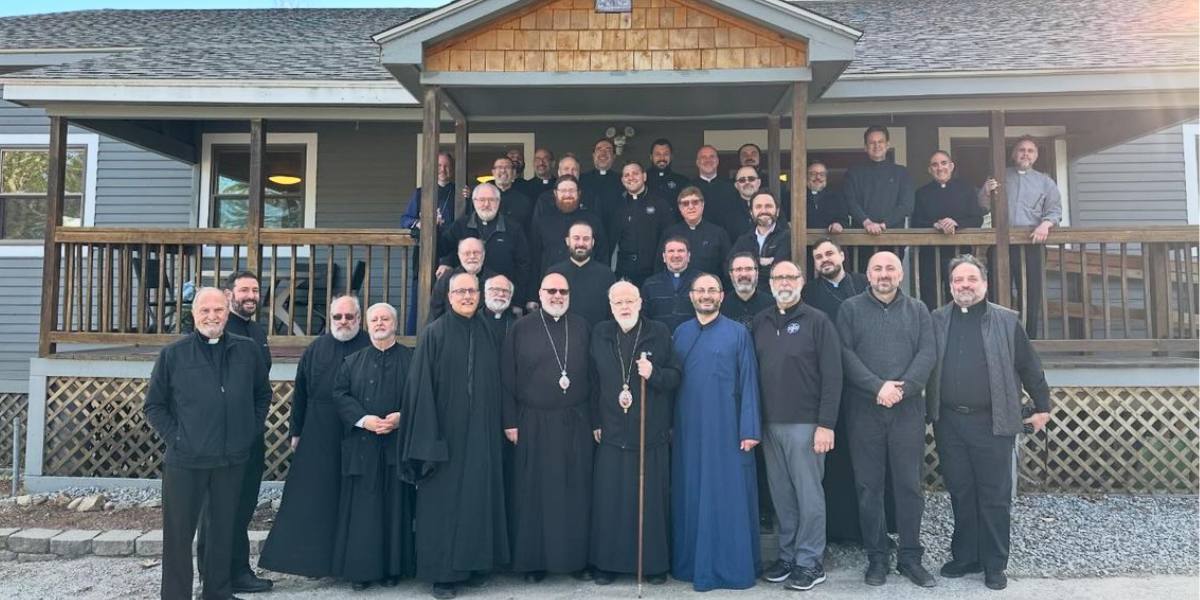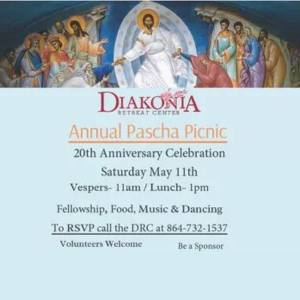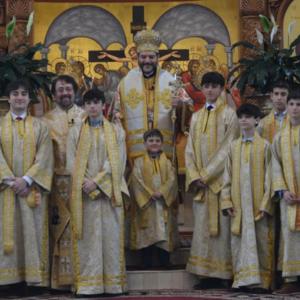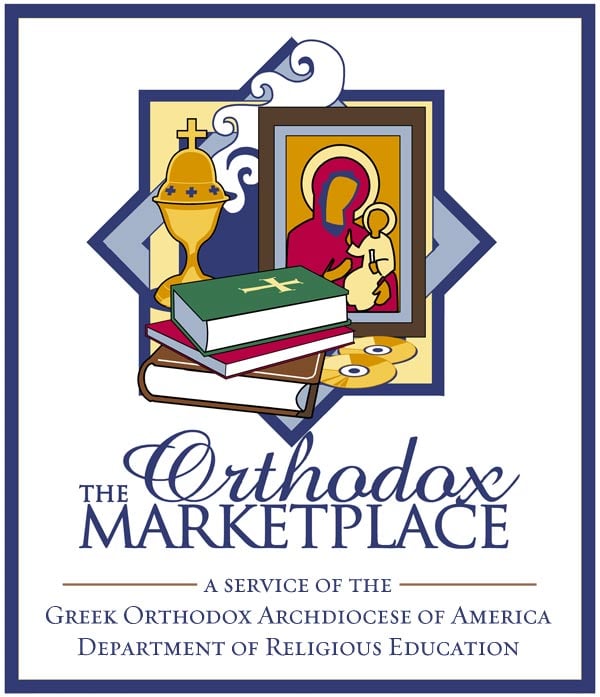Fr. Pentiuc’s New Book: Hearing the Scriptures: Liturgical Exegesis of the Old Testament in Byzantine Orthodox Hymnography
Hellenic College Holy Cross is pleased to announce the publication of Rev. Dr. Eugen J. Pentiuc’s new book Hearing the Scriptures: Liturgical Exegesis of the Old Testament in Byzantine Orthodox Hymnography (Oxford University Press, 2021).
Hearing the Scriptures is the first comprehensive lexical-biblical-theological analysis of selected Byzantine Orthodox hymns for Holy Week.
The author, an internationally recognized biblical scholar and theologian, examines various ways in which Scriptures, primarily Old Testament texts, have been read and interpreted by Byzantine hymnographers. Holy Week hymnography serves as a case study.
According to Fr. Pentiuc, “liturgical exegesis,” namely, biblical interpretations offered by liturgists (i.e., hymnographers and iconographers), is to be distinguished from “discursive exegesis” undertaken by Church Fathers in their commentaries on Scripture. If the latter tends to be linear, sequential and discursive in its exposition, the former is more holistic, mosaic-like, and quite imagistic. To underline this distinction between the two Byzantine hermeneutical modes, the author uses the analogy of visual arts, more specifically, the comparison between renaissance and cubist art. The latter, through its multi-angularity and simultaneity, is similar to liturgical exegesis. Interestingly, cubism and, analogously, liturgical exegesis emphasize the creative role of the viewer or hearer in the interpretive process.
With respect to Fr. Pentiuc’s proposed analogy, Michael D. Coogan, a noted biblical scholar and editor of The New Oxford Annotated Bible remarks: “In this learned and innovative study, Pentiuc brilliantly analogizes hymnic use of the Bible to cubism, in contrast to more representational patristic exegesis. A very important contribution to the Bible’s reception history.”
Although a scholarly work of methodology and content, Hearing the Scriptures was written with a wider audience in mind, namely, the Orthodox faithful, to serve as a guide to assist the worshipping community for a better understanding and appropriation of the interplay of Scripture and hymnography so characteristic of Holy Week liturgical services in the Byzantine Orthodox tradition.
The monograph Hearing the Scriptures is divided into parts:
Part I. Hearing the Scriptures through Holy Week Hymns
1. Chastity: Joseph and the Midnight Bridegroom—Holy Monday
2. Loyalty: Three Youths in a Fiery Furnace—Holy Tuesday
3. Bravery: A Daring Woman and a Hiding Eve—Holy Wednesday
4. Offering: Wisdom’s Freely Shared Banquet—Holy Thursday
5. Suffering: The Slaughtered Lamb and the Distraught Ewe—Good Friday
6. Overcoming: Jonah and the Never-Setting Light—Holy Saturday
Part II. Liturgical Exegesis
7. Key Features and Hermeneutical Procedures
Gary A. Anderson of Notre Dame University, eminent biblical scholar and theologian notes: “This learned work is a much-needed examination of the scriptural sources that inform the content of the liturgical poetry of the Orthodox Church. Such a task requires a good knowledge of the Greek Church and the Biblical text. Few scholars can handle both sides of this equation, but in Eugen Pentiuc the reader will find a superb guide.”
In the author’s own words, the six-year period marked by intense research and writing needed to bring the book to fruition could have not have materialized without God’s grace, a sabbatical provided by Holy Cross and the financial support of the Jaharis Family Foundation, the generous donor of the Archbishop Demetrios Chair of Biblical Studies and Christian Origins that Fr. Pentiuc holds.
Fr. Pentiuc has recently signed another contract with Oxford University Press for a new book, Reading the Hebrew Bible: An Orthodox Biblical Theology.

